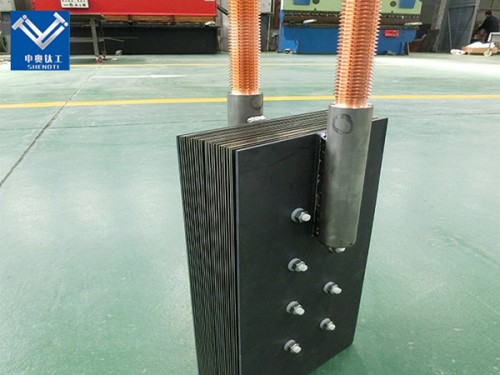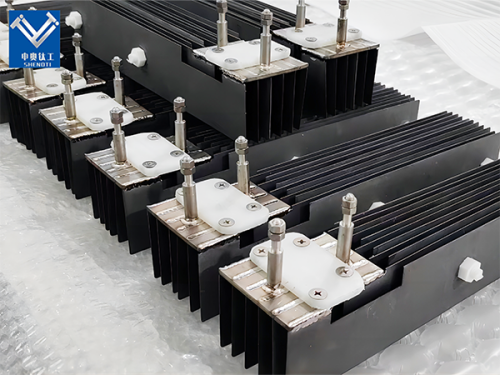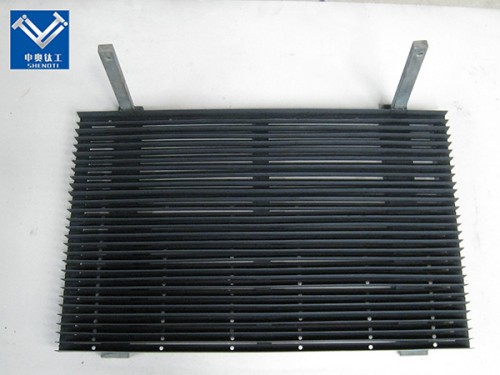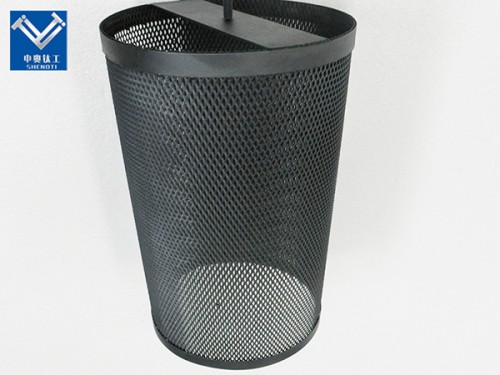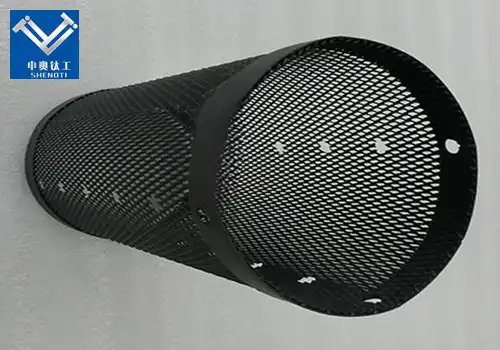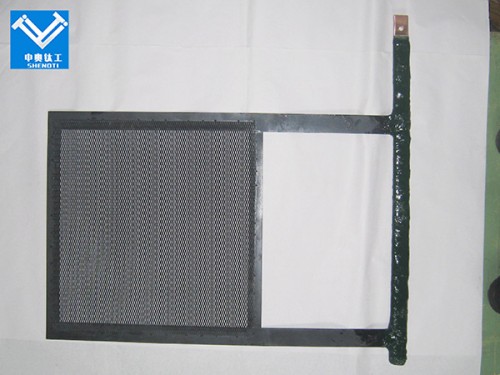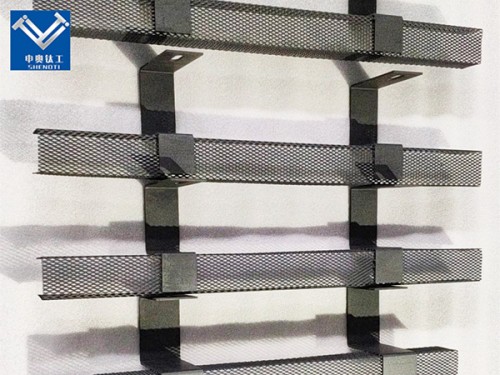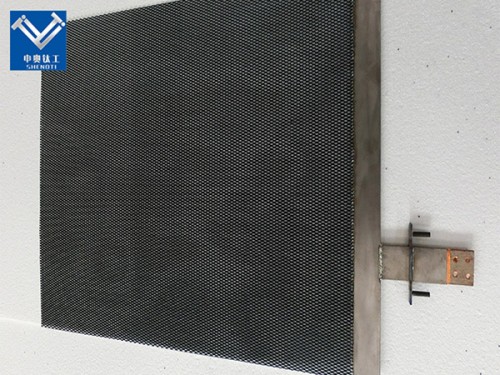
Why Use a DSA Titanium Anode for Electrolysis of Water?
2025-08-25 17:00:07
In today’s rapidly growing energy sector, water electrolysis has become one of the most promising technologies for producing clean hydrogen. At the core of this process lies a crucial component: the DSA titanium anode for electrolysis of water. Known for its durability, efficiency, and stability, this advanced electrode technology is widely adopted in hydrogen production plants, wastewater treatment systems, and renewable energy storage applications.
What is a DSA Titanium Anode for Electrolysis of Water?
A DSA titanium anode for electrolysis of water is a dimensionally stable anode (DSA) developed to withstand the harsh electrochemical environment of water splitting. DSAs were first invented by Olin Corporation in the 1960s, revolutionizing the electrochemical industry.
Structure of DSA Titanium Anodes
Base material: High-purity titanium, chosen for its corrosion resistance and mechanical strength.
Catalyst coating: Layers of precious metal oxides (typically ruthenium oxide, iridium oxide, or mixed metal oxides).
Surface treatment: Special thermal or electrochemical processes ensure strong adhesion of the coating, giving the electrode a long operational lifespan.
This unique structure allows DSA titanium anodes for electrolysis of water to operate with minimal degradation, making them an ideal choice for industrial-scale hydrogen production.
Why Use a DSA Titanium Anode for Electrolysis of Water?
1. High Durability
Titanium’s corrosion resistance combined with stable oxide coatings ensures long service life, even in aggressive electrolytes.
2. Improved Energy Efficiency
The catalytic coatings significantly reduce overpotential during oxygen evolution reactions (OER), which directly lowers power consumption in water electrolysis.
3. Environmental Safety
Unlike graphite or lead-based anodes, a DSA titanium anode for electrolysis of water does not release harmful byproducts, making it a green and eco-friendly technology.
4. Low Maintenance Costs
Due to long lifespan and stable performance, DSA electrodes minimize downtime and replacement frequency, reducing operational costs for industries.
Applications of DSA Titanium Anode for Electrolysis of Water
Hydrogen Production
With the global demand for green hydrogen on the rise, DSA titanium anodes for electrolysis of water are widely used in alkaline and PEM electrolyzers. They enable large-scale hydrogen generation with high efficiency and stability.
Wastewater Treatment
Electrochemical treatment plants use DSA titanium anodes to remove organic contaminants and disinfect water. Their ability to sustain high current densities makes them ideal for large-scale wastewater purification.
Chlor-Alkali Industry
Though mainly used for water electrolysis, DSAs are also essential in chlorine and caustic soda production, where stability against chloride-rich environments is critical.
Electrolytic Oxygen Generation
Applications such as aquaculture, medical oxygen supply, and metallurgical processes rely on DSA titanium anodes for electrolysis of water to produce oxygen safely and efficiently.
Technical Parameters of DSA Titanium Anode for Electrolysis of Water
Base material:Titanium (Gr1, Gr2)
Coating composition :RuO₂, IrO₂, MMO combinations
Operating current density :1000–5000 A/m²
Service life:2–10 years (depending on use)
Electrolyte compatibility: Acidic, alkaline, neutral
These parameters can be customized according to the client’s application requirements.
Industry Trends Driving Demand for DSA Titanium Anodes
Growth of Hydrogen Economy
Governments worldwide are investing heavily in hydrogen technologies as part of carbon neutrality goals. The use of DSA titanium anode for electrolysis of water is central to ensuring reliable, cost-effective hydrogen production.
Renewable Energy Storage
As solar and wind power continue to grow, electrolyzers powered by renewable energy require stable and efficient electrodes like DSAs for grid-scale hydrogen storage.
Environmental Regulations
Strict regulations on wastewater discharge have increased adoption of DSA titanium anodes in industrial effluent treatment systems, where conventional electrodes fail to perform long-term.
How to Choose the Right DSA Titanium Anode for Electrolysis of Water
When selecting the right electrode, industries should evaluate:
Electrolyte composition (acidic vs alkaline systems)
Required current density for the application
Expected service life under operating conditions
Coating formulation (RuO₂, IrO₂, Ta₂O₅, or mixed oxides)
Cost-performance balance based on production scale
Working with an experienced manufacturer ensures the electrode is optimized for specific processes, maximizing return on investment.
Advantages Over Traditional Electrodes
Unlike graphite, platinum, or lead-based electrodes, the DSA titanium anode for electrolysis of water offers:
Higher oxygen evolution efficiency
No electrode passivation
Resistance to mechanical wear
Consistent current distribution
Eco-friendly operation with no toxic leaching
These benefits make DSAs the preferred choice for industries committed to sustainability.
The DSA titanium anode for electrolysis of water is more than just an industrial component—it is a cornerstone technology in the clean energy transition. With advantages in durability, efficiency, and environmental safety, DSAs have become the industry standard for hydrogen production and wastewater treatment.
Baoji City ShenAo Metal Materials Co., Ltd. is a leading manufacturer of titanium electrodes, clad plates, and advanced metal materials. With years of expertise in non-ferrous metal processing, we provide customized solutions for hydrogen production, wastewater treatment, and electrochemical industries.
Contact Us:
📧 Email: zh@baojiti.com.cn
🌐 Website: https://shenaocladplate.com
YOU MAY LIKE











